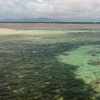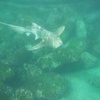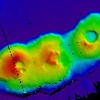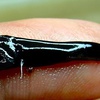
Tropical fish usually found at Ningaloo Reef move south to feed on kelp forests
A major climatic event has caused tropical fish that are usually found off Western Australia's Ningaloo Reef to swim south to tackle seaweed forests off the Mid West coast, marine scientists say. The fish are in such numbers and eating the kelp with a voracity not seen before anywhere else in the world. Read the full story in ABC News.




















